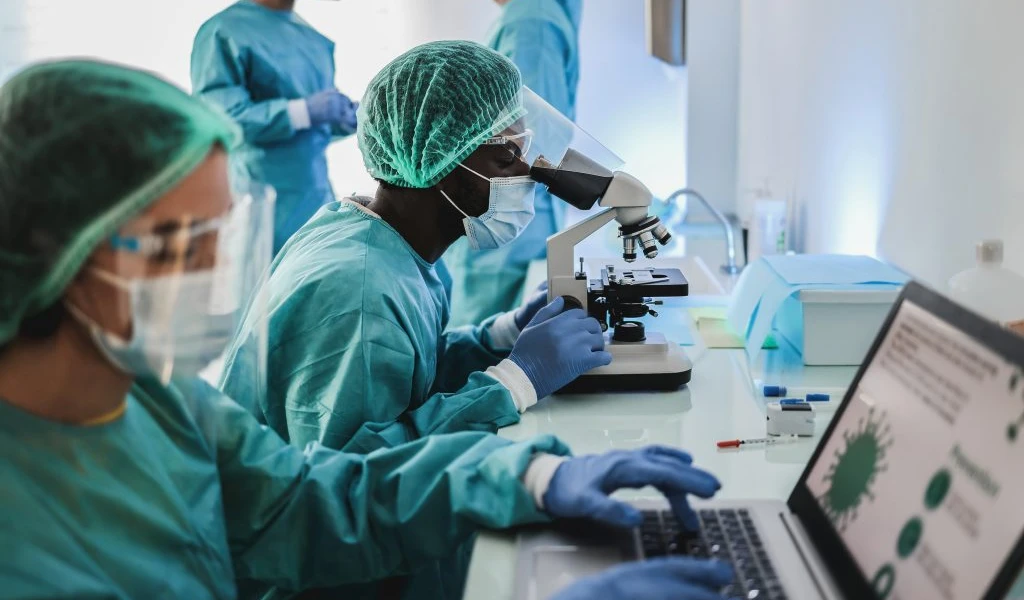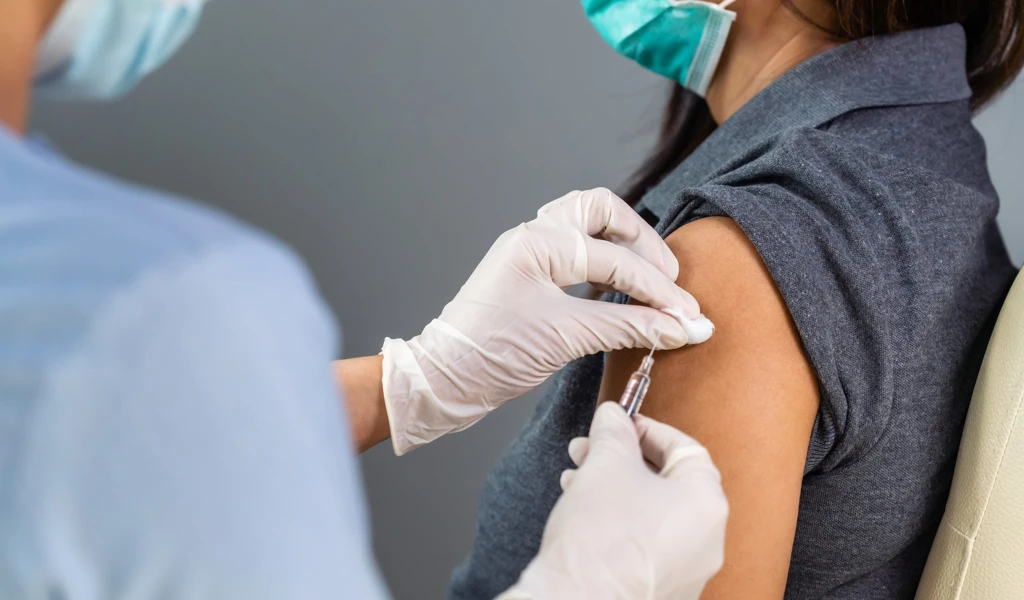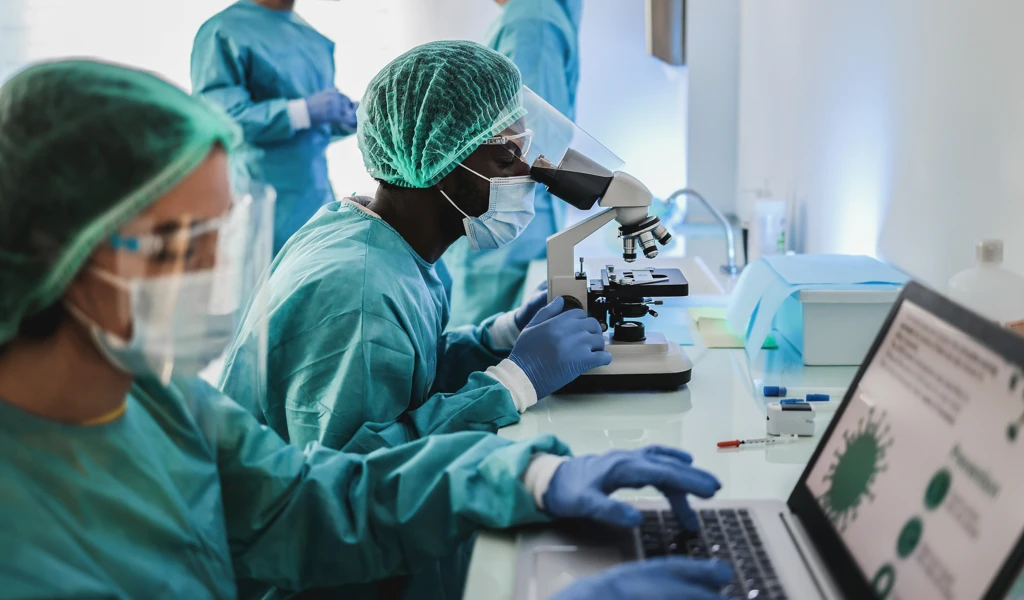CEPI expands partnership with SK bioscience to develop a ‘variant-proof' vaccine against SARS-CoV and SARS-CoV-2 variants
OSLO, Norway and SEOUL, Republic of Korea: 21 December 2021: CEPI, the Coalition for Epidemic Preparedness Innovations, and SK bioscience (SK) today announced an expanded partnership to develop a ‘variant-proof' vaccine candidate against sarbecoviruses—the group of viruses containing SARS-CoV and SARS-CoV-2.
CEPI will provide up to $50 million to support the development of a vaccine candidate based on SK's nanoparticle vaccine platform to elicit immune responses that could protect against variants of both SARS-CoV, SARS-CoV-2, and other sarbecoviruses. The funding will support immunogen design, preclinical studies, Phase I/II clinical trials, production of necessary clinical trial material, and process and analytical development. To date, CEPI has invested up to $260 million—including the funding announced today—to advance SK's vaccine platform and manufacturing capacity for use against COVID-19.
This partnership is the latest award under CEPI's $200 million programme, launched in March 2021, to advance the development of vaccines that provide broad protection against SARS-CoV-2 variants and other Betacoronaviruses [1]. CEPI is accelerating its programme to develop broadly protective coronavirus vaccines—a core part of its $3.5 billion pandemic preparedness plan—in view of the continued threat posed by new SARS-CoV-2 variants like Omicron.
Variant-proof vaccine
The vaccine candidate is a recombinant-protein based on a two-component self-assembling nanoparticle platform developed at the Institute for Protein Design (IPD) at the University of Washington, as was SK's vaccine candidate against COVID-19 (GBP510).
The vaccine candidate displays receptor-binding domains (RBDs) of multiple sarbecoviruses. The RBD is the portion of the Spike protein that enables the virus to bind to and infect human cells.
Potential advantages of this vaccine candidate include broad protection against SARS-CoV, SARS-CoV-2 variants and additional novel sarbecoviruses; scalability; and thermostability. The nanoparticle platform could also be used to develop vaccines against future unknown pathogens, referred to as Disease X.
Additionally, Phase I/II studies of SK's GBP510 COVID-19 vaccine candidate have shown that it is safe and induces very high titres of neutralising antibodies. This candidate is currently being evaluated in Phase III studies, with data expected to be available in the first half of 2022.
Enabling equitable access
CEPI and SK bioscience are committed to enabling global equitable access to COVID-19 vaccines and have agreed that hundreds of millions of doses of this vaccine candidate will be made available for equitable allocation worldwide, if proven to be safe and effective. The profile of the vaccine candidate — which has the potential to be manufactured at scale at low cost, and could be distributed using existing cold chain infrastructure - makes it well suited for use in low- and middle-income countries.
The rapid spread of the Omicron variant serves as a stark reminder of the ever-present threat posed by new COVID-19 variants, and their potential to derail the progress the world has made over the past year. It is vital for global health security to develop globally accessible vaccines that provide broad protection against COVID-19 variants and other coronaviruses. Through CEPI's expanded partnership with SK bioscience, we aim to help control COVID-19 in the longer term and also prepare for the next viral threat before it emerges.
CEPI's deep trust based on SK's proven technology which is demonstrated during Phase III clinical trial of GBP510 and its manufacturing system has led to this expanded partnership. We will continue to research and develop to prepare long-term and fundamental solutions against the pandemic situation where various variants of COVID-19 keep threatening humanity.
Strengthening our defences against coronaviruses
While the world has made great advances in vaccine development against COVID-19, the emergence of Omicron is a reminder that variants of concern will continue to pose a threat to this progress as long as the virus continues to circulate. Vaccines have dramatically altered the course of the COVID-19 pandemic in countries that have access to them, but emerging variants that are more transmissible, more deadly, and/or can evade the protection provided by current vaccines could create significant challenges. Developing novel vaccines that target variants of the SARS-CoV-2 virus and have the potential to generate immunity against all of them is therefore essential for the long-term control of the virus.
As illustrated by COVID-19, coronaviruses have a devastating pandemic potential. The emergence of a coronavirus combining the transmissibility of COVID-19 with the lethality of SARS or MERS would be catastrophic; thus, developing vaccines that provide broad protection against the whole betacoronavirus genus is vital to global health security. CEPI is working closely with partners to advance work in this area as quickly as possible.
[1] The Betacoronavirus genus includes the subgenus known as sarbecovirus. Sarbecoviruses include types of coronavirus that cause Severe Acute Respiratory Syndrome (SARS), which have been responsible for major outbreaks in Asia in recent years, and also SARS-CoV-2, the virus responsible for the ongoing COVID-19 pandemic.
--ENDS--
About CEPI
CEPI is an innovative partnership between public, private, philanthropic, and civil organisations, launched at Davos in 2017, to develop vaccines against future epidemics. Prior to COVID-19 CEPI's work focused on developing vaccines against Ebola virus, Lassa virus, Middle East Respiratory Syndrome coronavirus, Nipah virus, Rift Valley Fever virus and Chikungunya virus — it has over 20 vaccine candidates against these pathogens in development. CEPI has also invested in new platform technologies for rapid vaccine development against unknown pathogens (Disease X).
During the current pandemic, CEPI initiated multiple programmes to develop vaccines against SARS-CoV-2 and its variants with a focus on speed, scale and access. These programmes leverage the rapid response platforms developed by CEPI's partners prior to the emergence of COVID-19 as well as new collaborations. The aim is to advance clinical development of a diverse portfolio of safe and effective COVID-19 candidates and to enable fair allocation to these vaccines worldwide through COVAX.
CEPI's 5-year plan lays out a $3.5 billion roadmap to compress vaccine development timelines to 100 days, develop a universal vaccine against COVID-19 and other Betacoronaviruses, and create a "library" of vaccine candidates for use against known and unknown pathogens. The plan is available at https://endpandemics.cepi.net.
Follow our news page for the latest updates. Follow us via @CEPIvaccines, @DrRHatchett, and LinkedIn.
About SK bioscience
Located in Republic of Korea, SK bioscience is a biopharmaceutical company, specialized in research, development, and manufacturing innovative vaccines. SK bioscience is dedicated to serve improving human health from prevention to cure. Based on its globally certified technology and supply facilities, SK bioscience provides vaccines in worldwide which has a limited access to affordable therapeutics. For further information, please visit https://www.skbioscience.co.kr/en/main
CEPI Media Contacts
Email: [email protected]
Phone: +44 7387 055214
SK bioscience Media Contacts
Tae-Gyun Kim (+82 010 9463 0630)
Chang-Hyun Jin(+82 010-2041-8010)


